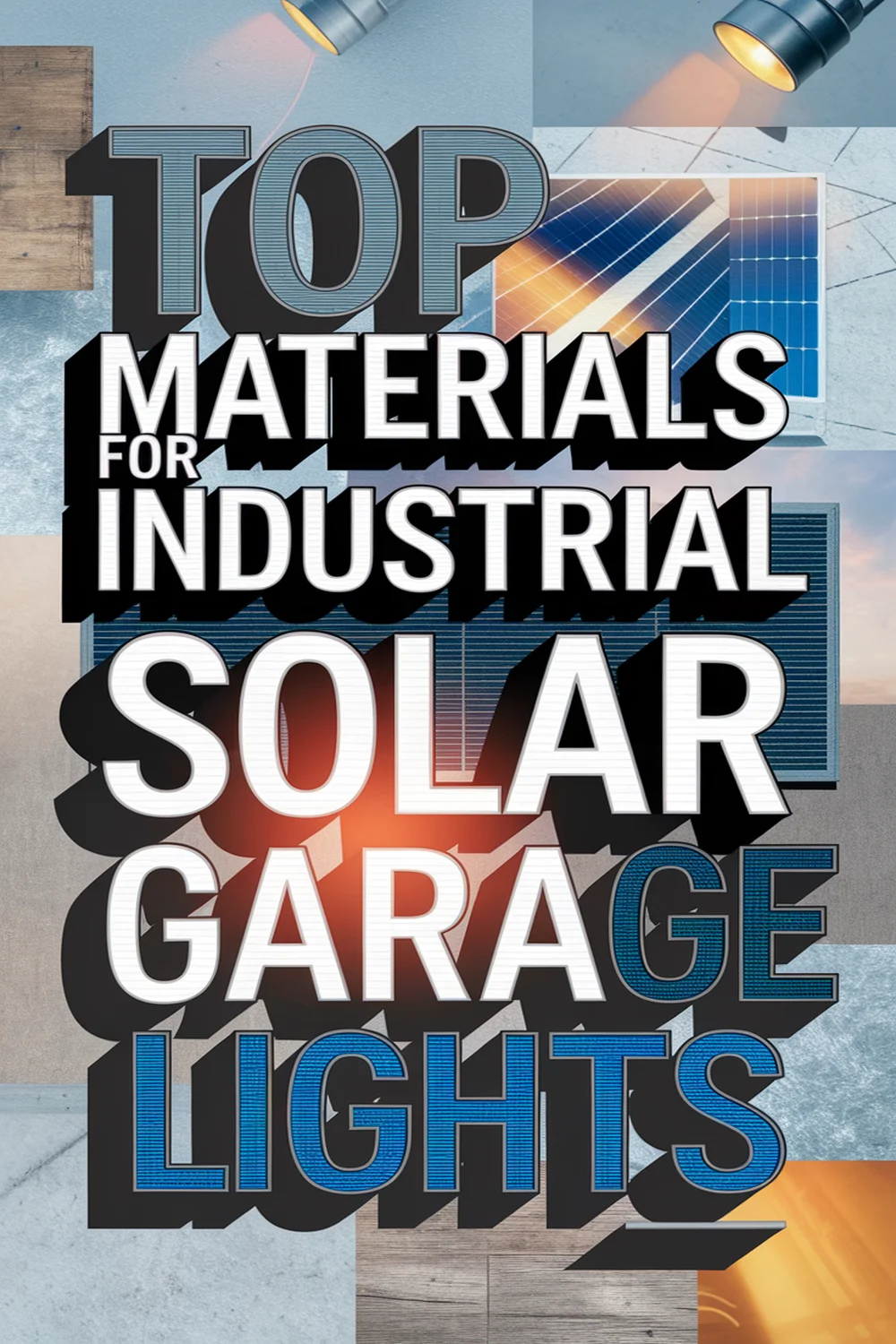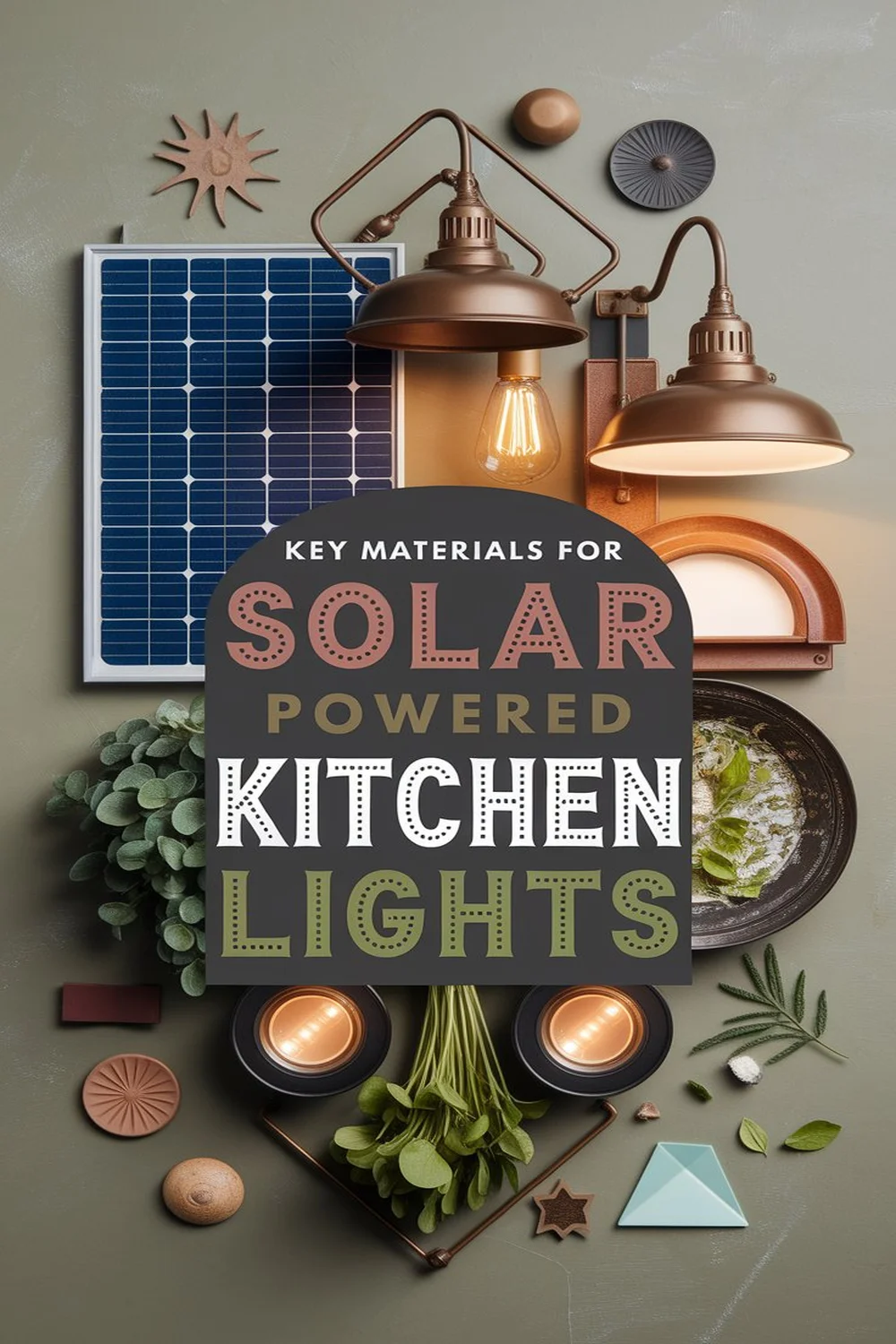This post may contain affiliate links. Please read our policy page.
When selecting materials for industrial garage solar-powered lights, I recommend prioritizing high-quality aluminum or polycarbonate for durable housing, as they resist corrosion and impacts effectively. Choose monocrystalline solar panels for peak efficiency, or polycrystalline for cost-effectiveness in larger installations. For weather resistance, make certain components are sealed and utilize powder coatings. Finally, lithium-ion batteries offer superior energy storage capacity and lifespan. Explore how these materials can optimize performance and longevity in your lighting systems.
Importance of Material Selection for Solar-Powered Lights
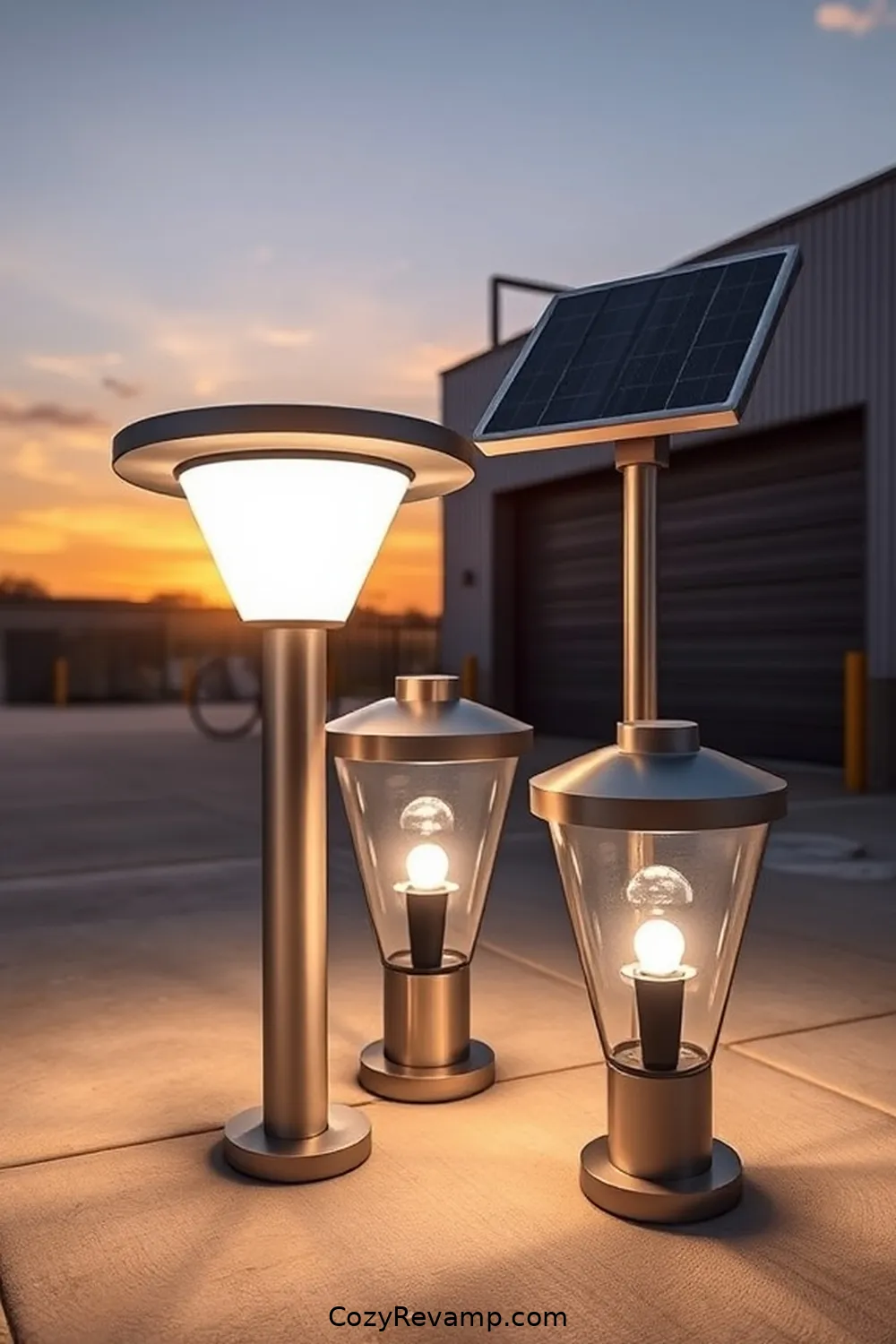
When I consider the effectiveness of solar-powered lights, I realize that the materials used in their construction play a crucial role in their performance and longevity. High-quality solar panels, typically made from monocrystalline or polycrystalline silicon, guarantee peak energy conversion.
The casing materials, often polycarbonate or aluminum, must withstand environmental stressors while providing protection against impacts and corrosion. Additionally, the choice of rechargeable batteries, such as lithium-ion or nickel-metal hydride, directly affects energy storage efficiency and lifespan.
Conductive materials also matter; copper wiring is essential for minimal energy loss. By selecting robust materials, manufacturers can enhance durability and reliability, ultimately leading to improved functionality in industrial garage settings.
Each component’s quality contributes greatly to the overall effectiveness of solar-powered lighting systems.
Recommended Items
Here are our recommended products and equipment to install—feel free to explore!
Durable Housing Materials for Industrial Environments
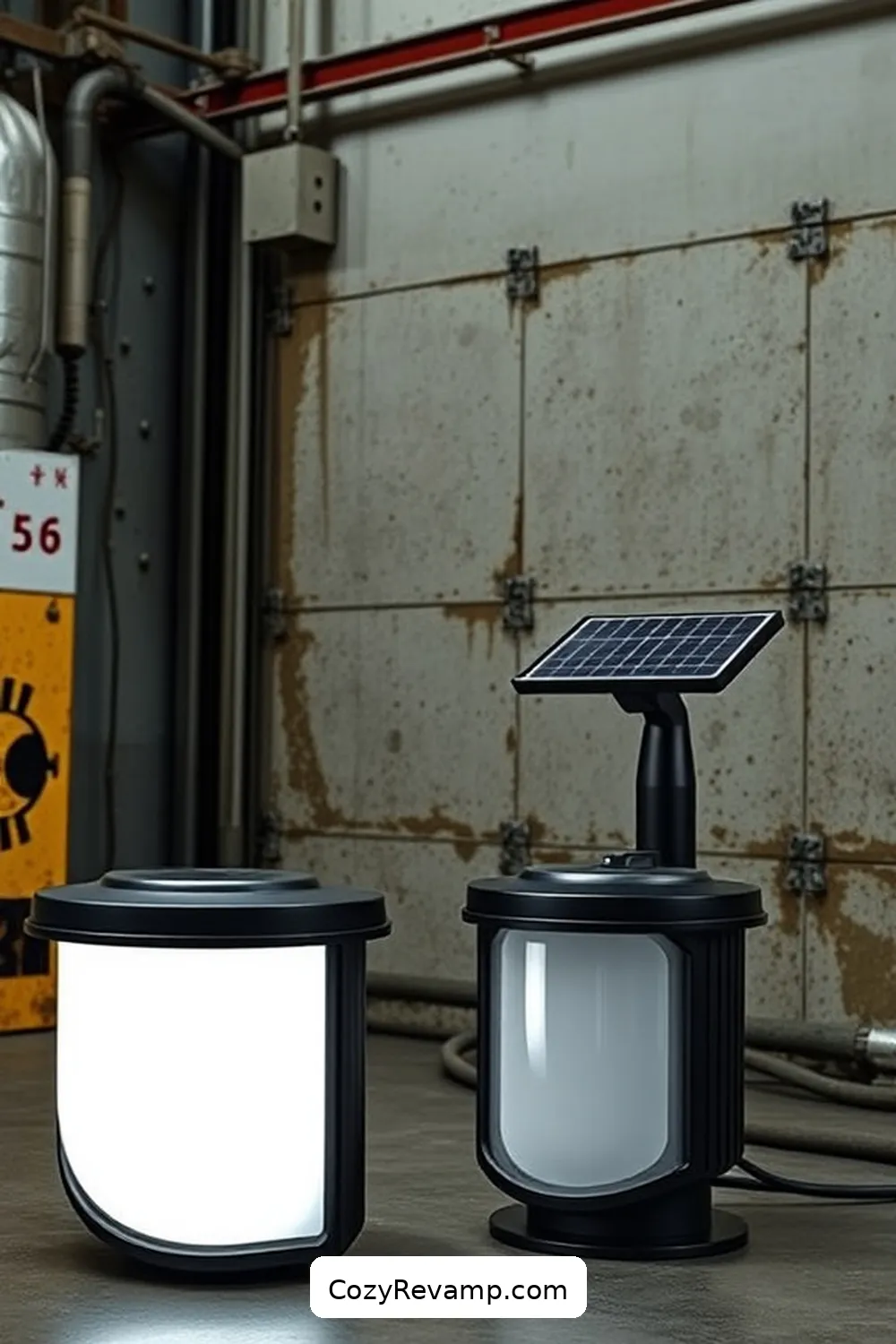
Choosing durable housing materials is essential for solar lights in industrial environments, as they face harsh conditions that can compromise performance.
I recommend materials like aluminum and polycarbonate for their resilience. Aluminum’s lightweight yet sturdy nature provides excellent resistance to corrosion and impact, making it ideal for outdoor settings.
Aluminum and polycarbonate are ideal choices for durable solar lights, offering resilience against corrosion and impact in outdoor environments.
Polycarbonate, on the other hand, offers superior clarity and UV resistance, guaranteeing peak light transmission while protecting internal components from environmental damage.
Additionally, consider coatings that enhance durability, like powder coating for aluminum, which adds a layer of protection against scratches and weathering.
Efficient Solar Panels: Types and Their Benefits
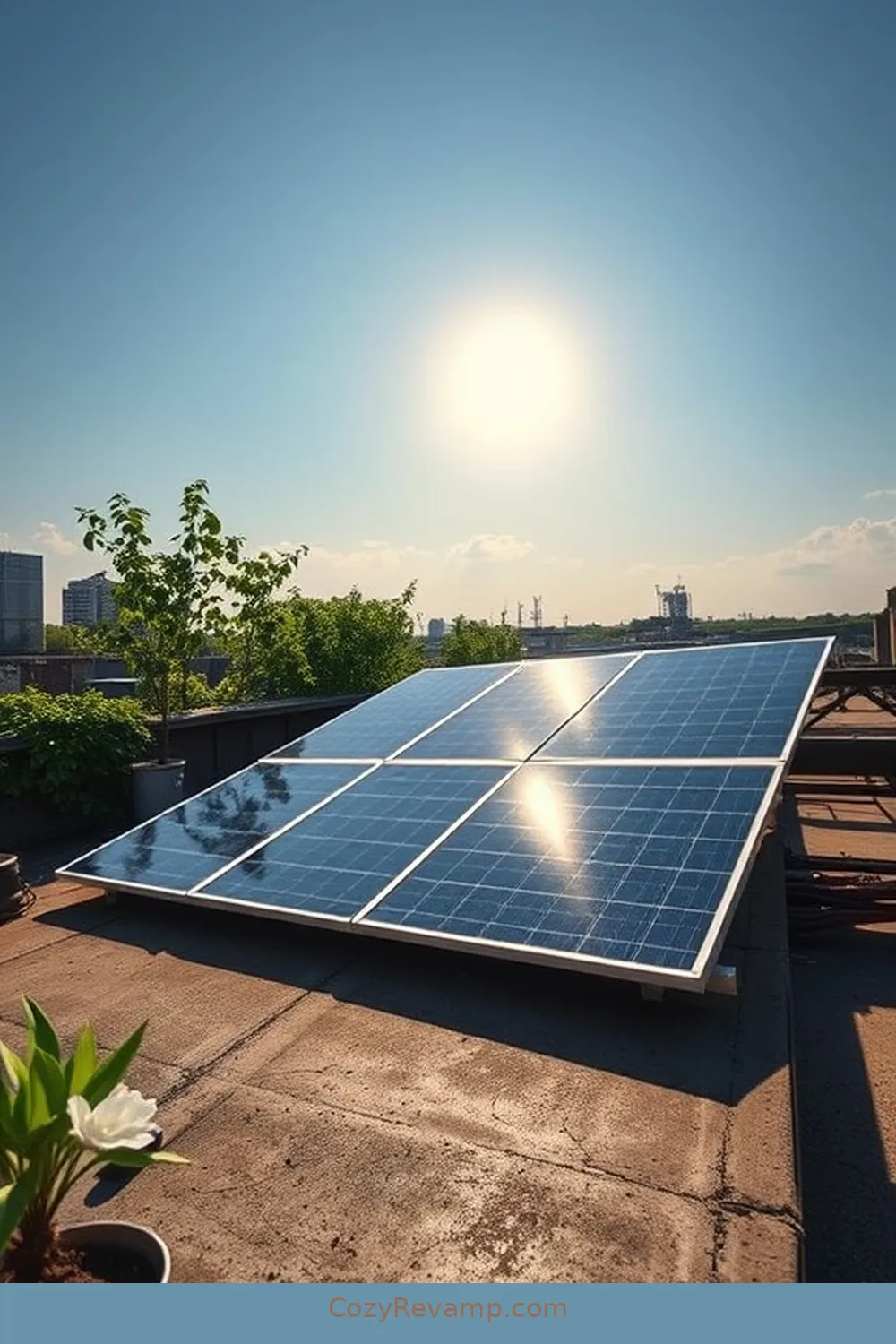
Durable housing materials are just one element of effective industrial solar lighting; the efficiency of the solar panels themselves plays a pivotal role in overall performance.
When I evaluate solar panels, I focus on two main types: monocrystalline and polycrystalline. Monocrystalline panels, with their high efficiency rates (up to 22%), excel in space-constrained installations, converting more sunlight into electricity.
On the other hand, polycrystalline panels, while slightly less efficient (around 15-17%), are more cost-effective and offer better performance in high-temperature conditions.
Choosing the right type depends on the specific needs of the garage environment. Ultimately, selecting efficient solar panels not only maximizes energy output but also enhances the overall sustainability of industrial lighting solutions.
Task Overview for Garage Solar Lighting
Weather-Resistant Components for Long-Lasting Performance
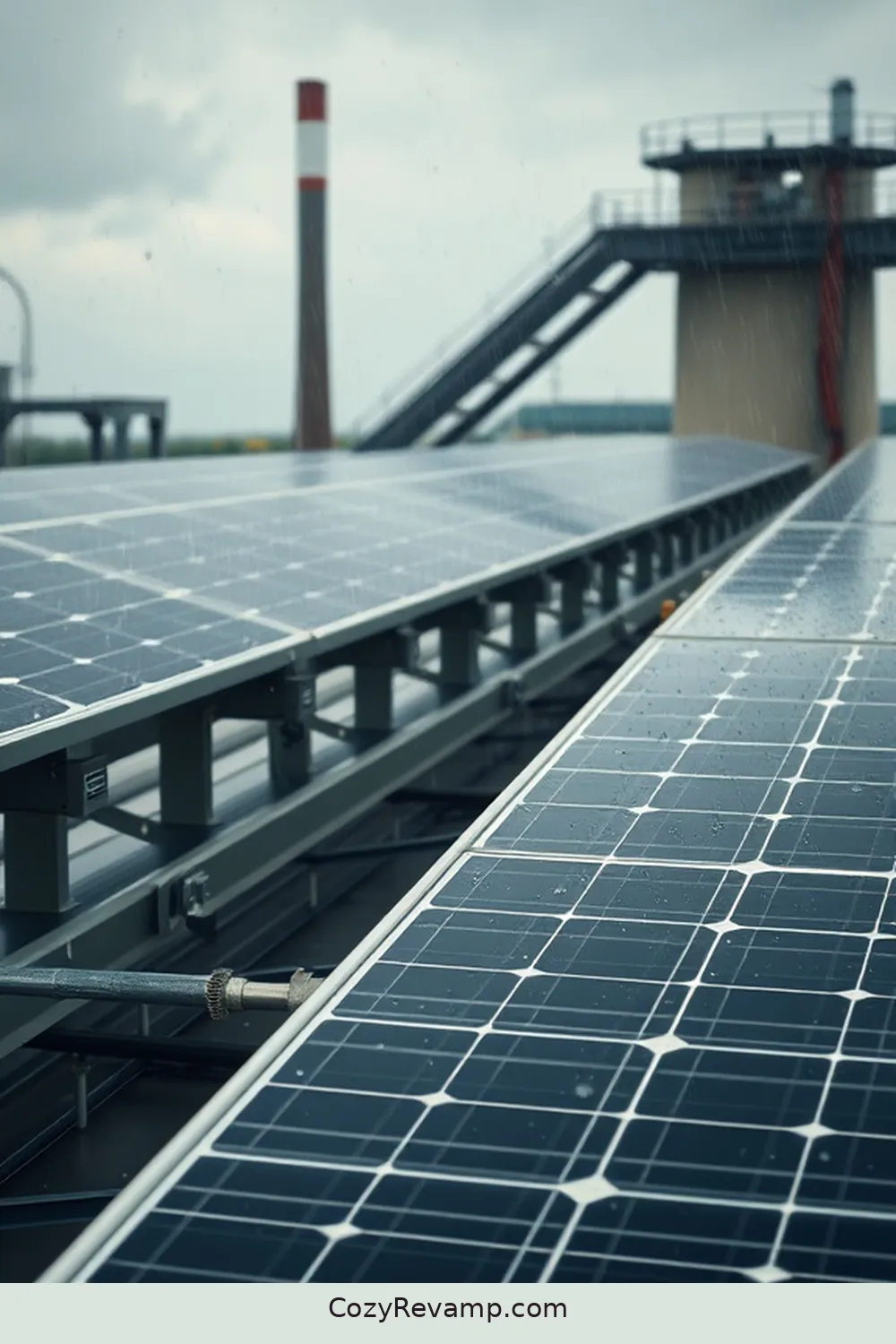
While many factors contribute to the longevity of industrial garage solar lights, incorporating weather-resistant components is essential for ensuring their performance over time.
Incorporating weather-resistant components is crucial for the longevity and performance of industrial garage solar lights.
I’ve found that materials such as high-grade aluminum and polycarbonate are particularly effective. Aluminum’s corrosion resistance prevents degradation from moisture and harsh elements, while polycarbonate offers excellent impact resistance and UV protection.
Sealing technologies, like silicone gaskets, provide additional layers of protection against water intrusion.
It’s also vital to take into account the coatings used, as powder coatings can enhance durability against environmental wear.
In my experience, selecting lights with these weather-resistant components not only boosts reliability but also reduces maintenance costs, ensuring that the investment in solar technology pays off in the long run.
Energy Storage Solutions: Batteries and Their Material Composition
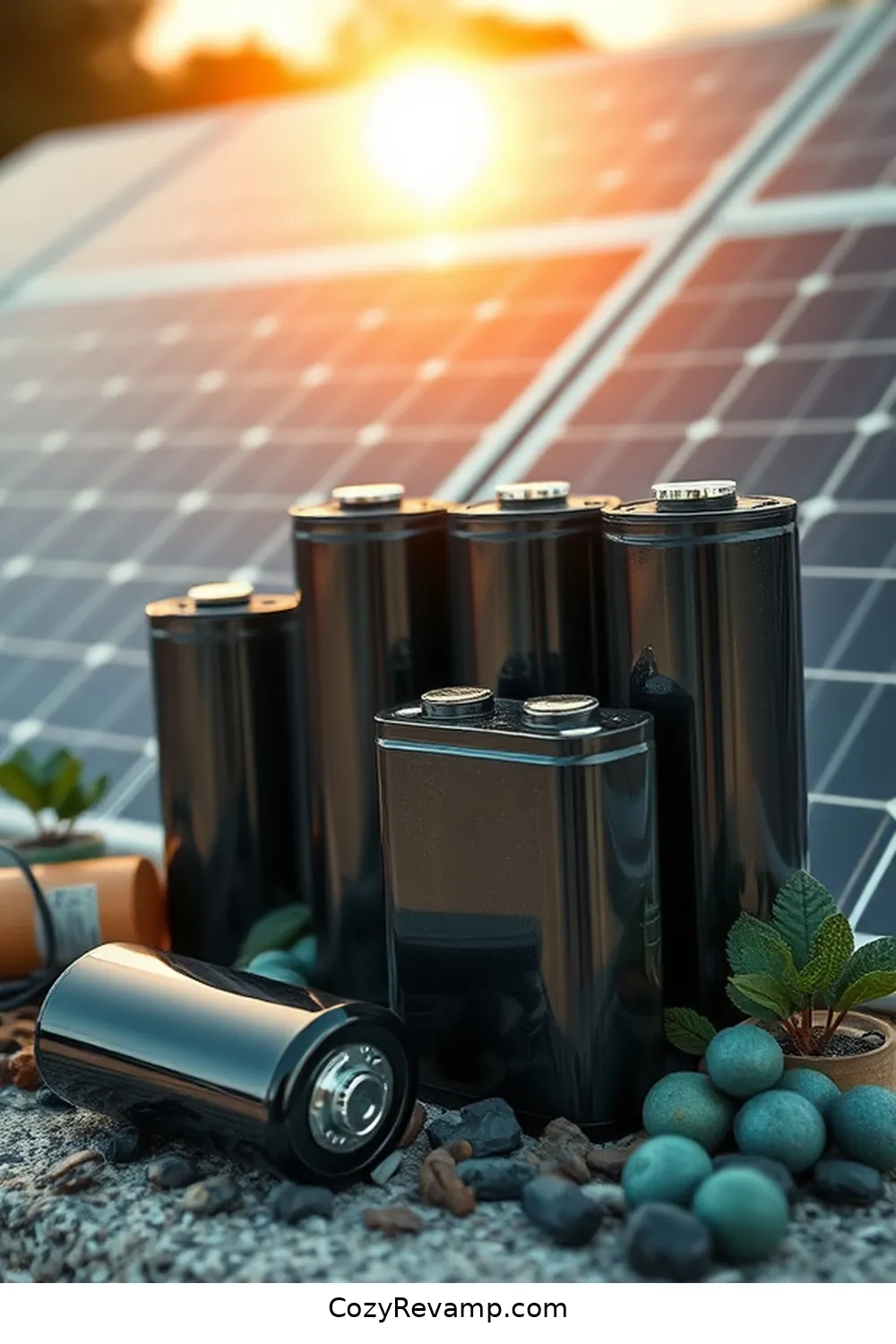
Weather-resistant components play an essential role in the performance of industrial garage solar lights, but energy storage solutions are equally important for their functionality.
The choice of batteries greatly impacts efficiency and longevity. Lithium-ion batteries dominate the market due to their high energy density, lightweight nature, and longer cycle life. These batteries typically consist of lithium cobalt oxide or lithium iron phosphate, offering different performance characteristics.
Nickel-metal hydride (NiMH) batteries, while less common, provide a viable alternative, especially in lower temperatures. Lead-acid batteries are another option but tend to be bulkier and less efficient.
Ultimately, selecting the right battery material composition guarantees ideal performance, durability, and sustainability of solar-powered lighting systems in industrial settings.

